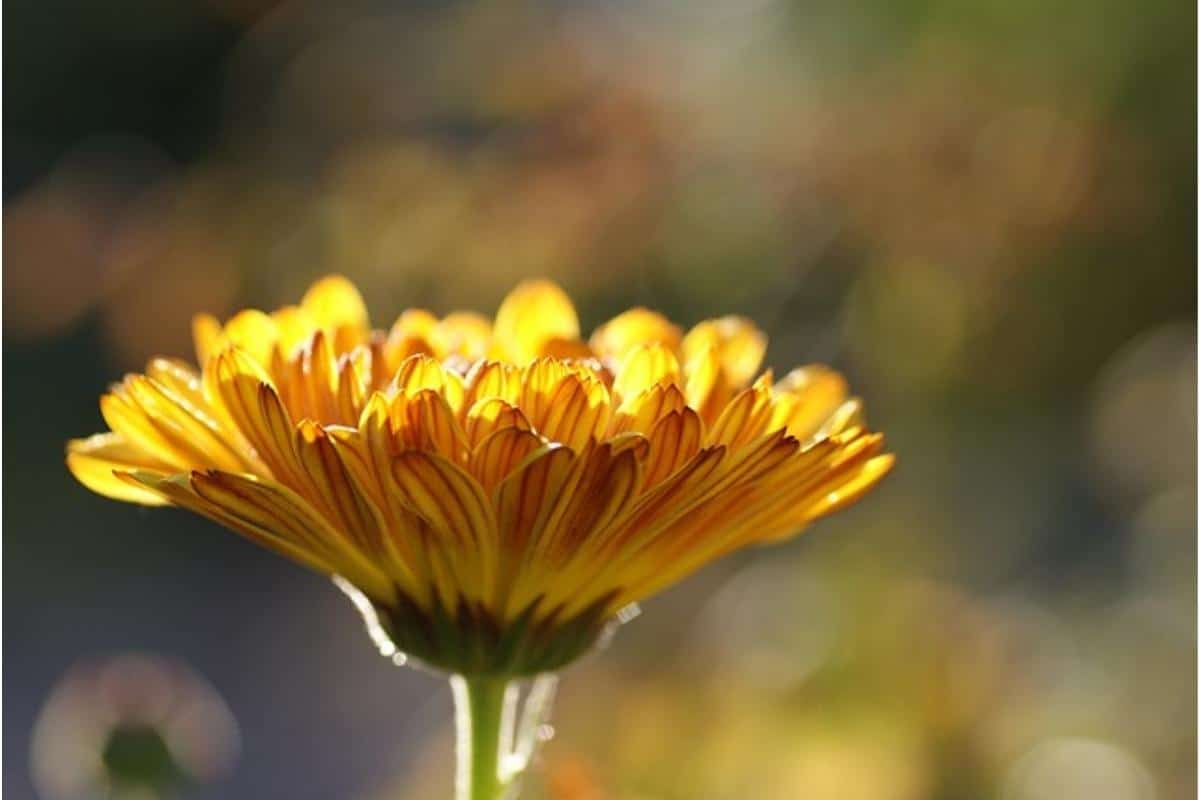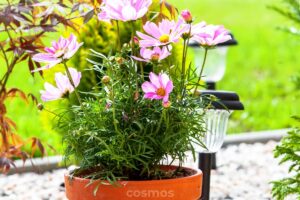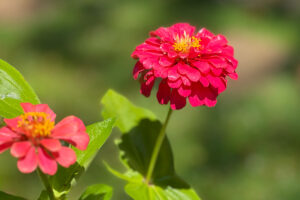This page may contain affiliate links. If you click and buy, we might get a small commission at no cost to you.
Patios are one of the most relaxing ways for someone to enjoy the outdoors, but there’s one menace that could make even the most outdoorsy person retreat inside; mosquitoes. These flying insects love to bite people and leave behind unbearably itchy marks. Are there any ways to keep these bugs away without relying on sprays that can be sticky and uncomfortable? Luckily, there are various patio plants that repel mosquitoes and can also make beautiful additions to any outdoor space.
That’s exactly what we’re looking at in this article.
13 Patio Plants that Repel Mosquitoes
Mosquitoes are certainly a nuisance, but they also pose a more serious threat of carrying diseases. Whether you aren’t a fan of bug spray, or just want another tool for your arsenal, here are 13 different plants you can plant in your backyard and around your patio, that are known for repelling mosquitoes.
1. Lavender

Scientific name: Lavandula
Lavender plants are a great option to repel nearly any kind of insect, especially mosquitoes. While people tend to enjoy how lavender smells, their scent is what makes them a natural repellent. This is due to the essential oils in lavender.
There is one argument that states these plants will actually prevent mosquitoes from being able to smell. They also work to repel other animals, like rabbits or squirrels. Lavender can survive in nearly any climate, but they especially strive in warm areas.
It is advised to keep these plants away from household plants, as they are toxic to most animals.
2. Marigolds
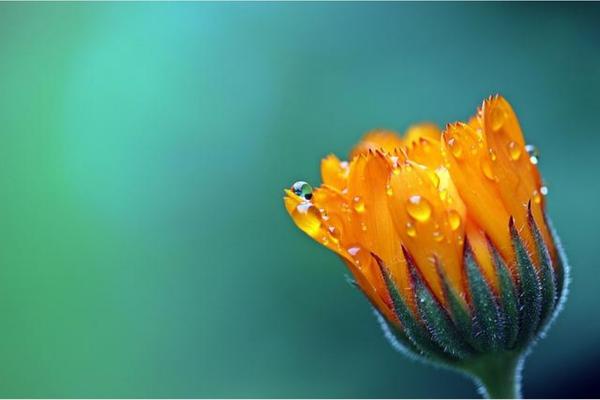
Scientific name: Tagetes
Marigolds are quite easy to grow, and the scent that most people enjoy works to repel pesky mosquitoes. Decorating your patio and home entrances with these plants are a great way to keep most bugs out. They are often used in and around gardens as a natural form of insect repellent.
In addition to mosquitoes, Marigolds will keep away white flies, squash bugs, Mexican bean beetles, and more.
3. Citronella Grass
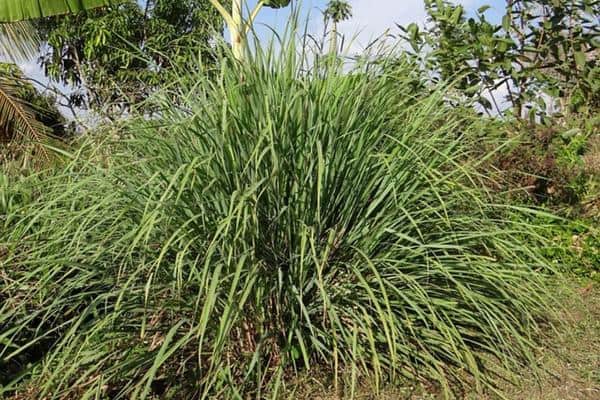
Scientific name: Cymbopogon nardus
Citronella grass, commonly referred to as lemongrass, is a natural ingredient in many bug repellents. Stores even sell citronella candles during the summer months. Of course, having live lemongrass on your patio is even more effective at keeping away mosquitoes than any natural spray.
While these plants don’t require much maintenance, they can’t live through the frosts that come with cold weather.
4. Catnip
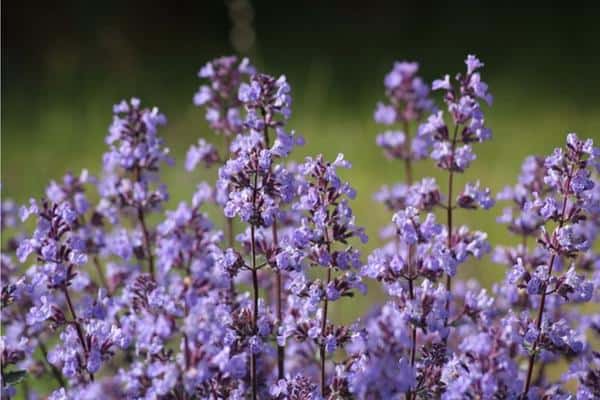
Scientific name: Nepeta cataria
Catnip plants are in the mint family and can be found growing nearly anywhere. It is often sold as a commercial plant but is considered a weed in some areas. Live catnip plants were actually found to be more effective than some of the chemicals commonly used in mosquito repellents.
These plants are extremely easy to care for but can become invasive if planted near gardens or other plants. Catnip also works to repel deer ticks, flies, and cockroaches. It is a great option for cat lovers who want a pet-safe way to keep mosquitoes at bay.
5. Rosemary

Scientific name: Salvia rosmarinus
Rosemary is a well-known herb that many people love to use when cooking. This plant is also great for keeping away mosquitoes, as well as carrot flies and cabbage moths. While they thrive in warm and dry climates, they can easily be grown in containers in colder regions.
These plants make great smelling patio decorations that also work as seasoning. Dried Rosemary and water combined are often used as natural bug sprays.
6. Basil

Scientific name: Ocimum basilicum
Just like Rosemary, Basil is another herb that can be used as a seasoning and a mosquito repellent. All types of basil works, as it is the smell from their leaves that keep these flying menaces away. They need to be kept damp and given access to a lot of sunlight.
In addition to keeping your patio clear from mosquitoes and house flies, Basil also makes a great component in salads, soups, and various chicken recipes. Fresh basil combined with certain vegetables will also enhance their flavor.
7. Mint

Scientific name: Mentha
Mint is a nontoxic plant with a smell that works to repel mosquitoes, flies, and ants. They make simple patio decorations, and many people will pull off fresh leaves to put in cups of tea. It is recommended for mint to be in pots instead of straight in the ground because it spreads so quickly.
Once a garden becomes invaded with this plant it can be difficult to get rid of it. Dried mint leaves can also be used indoors to prevent unwanted visits from bugs.
8. Bee Balm
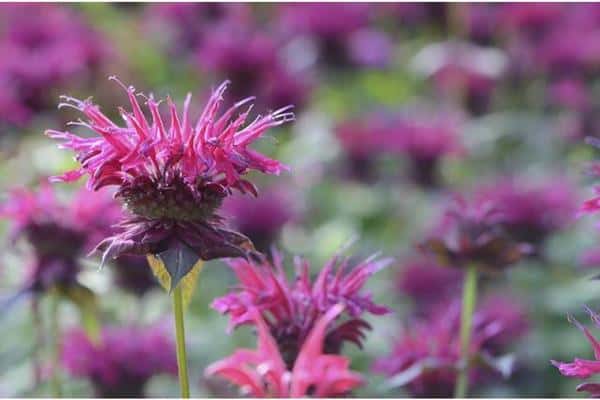
Scientific name: Monarda
Bee balm, also known as Monarda or horsemint, works to repel nuisance bugs like mosquitoes. It also has the added benefit of attracting good insects, like bees and butterflies. While live bee balm plants are great repellents, they have the same effect when crushed up and spread around other plants.
Another added benefit is that bee balm plants bloom beautiful flowers of various colors throughout the summer. This makes them a great addition to any outdoor patio.
9. Sage

Scientific name: Salvia officinalis
Sage is similar to Rosemary when it comes to where they should be planted. They thrive in flower beds and perform just as well when grown in pots. Sage plants emit an earthy smell when burned, which works to repel mosquitoes and other pests.
They are a great option for those that have a fire pit or just enjoy camping. Tossing some sage onto a fire will keep away unwanted insects, so you can focus on enjoying the outdoors.
10. Allium
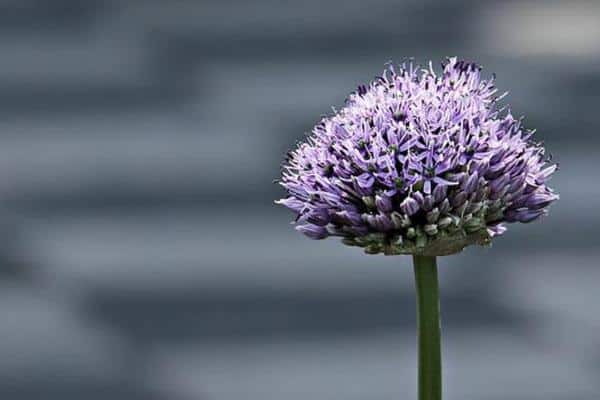
Scientific name: Allium
Allium plants are used to repel various types of insects and are considered a broad-spectrum insecticide. A few of the pests they keep away are mosquitoes, cabbage worms, carrot flies, and slugs. Vegetable gardens will especially benefit from having these nearby, as they work to protect tomatoes, cabbage, broccoli, and more.
The Allium family includes herbs such as garlic chives, shallots, and leeks. It’s the fragrance that emits from the bulbs of these plants that work to keep away mosquitoes and other bugs.
11. Floss Flower
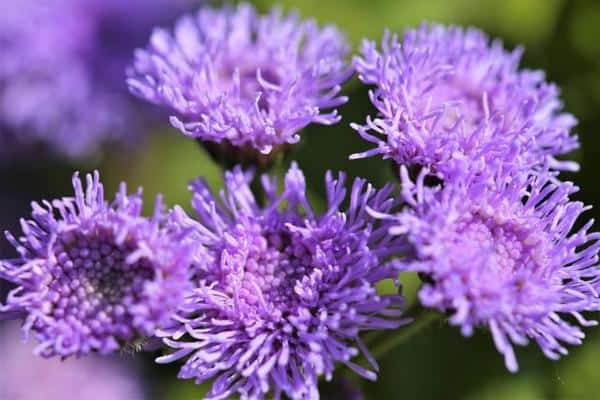
Scientific name: Ageratum houstonianum
Floss flowers contain a chemical that is commonly used in insect repellents, coumarin. Mosquitoes specifically don’t like this chemical and will work to avoid it. These plants will produce pink, white, and blue blossoms during the summer and fall.
The colorful blooms make them a beautiful addition to any patio. It is recommended to keep floss flowers fertilized regularly.
12. Lemon Thyme
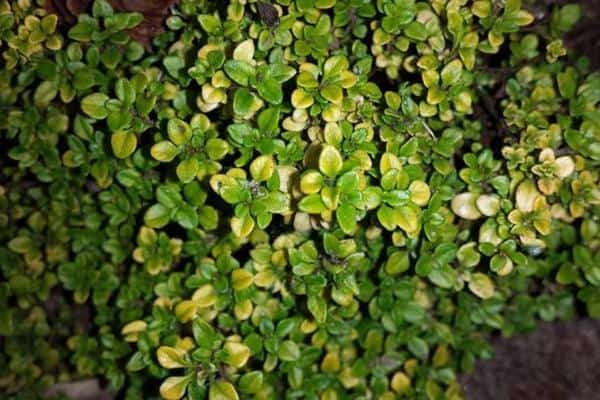
Scientific name: Thymus citriodorus
Lemon thyme is a durable herb that can thrive in various conditions as long as it gets plenty of sunlight. While they are a common mosquito repellent, it is not the plant itself that keeps them at bay. In order for lemon thyme to be effective, the leaves must be bruised or the stems must be cut.
Doing so released the chemical that deters mosquitoes. This chemical can also cause skin irritations so it is best to use it with caution.
13. Geraniums
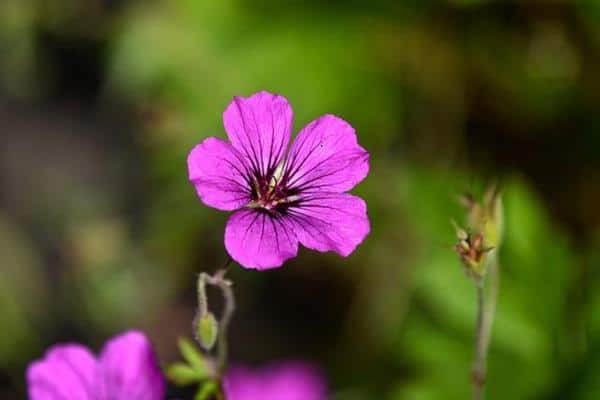
Scientific name: Pelargonium
Geraniums work to repel many types of bugs, but one specific type, the Pelargonium citrosum, is referred to as the Mosquito Repellent Plant. This type of Geranium produces flowers that emit a lemon-like scent. It’s this fragrance that works to keep away mosquitoes and other insects. They thrive in dry and sunny climates and grow relatively fast.
Unfortunately, studies have been done that suggest mosquito plants (Pelargonium citrosum), actually aren’t effective against keeping mosquitoes away.
Conclusion
Surrounding yourself in mosquito repelling plants can be effective, but in the end DEET spray-on mosquito repellent products are the most effective against keeping mosquitoes away.
